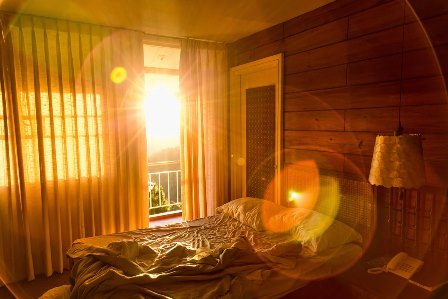It’s not enough for the home to be beautiful, it needs sufficient light as well. Here’s how you can light up.
by Reyna Mathur
Many people do up their homes beautifully, sparing no expense on furniture and fittings. And then they fix ordinary tube lights and bulbs on the walls, killing off the beauty of the house in one stroke. You cannot leave the lighting of the house for last – light design is a discipline in architecture and interior design, and the fitting of lighting appliances in your home cannot be an afterthought.
People hardly ever give a thought to light as an element. It is available in both natural and artificial form, and it is up to a good designer to harness its power and beauty after studying the layout of the house. If not done right, your house can result in dim passages, over-lit bedrooms, dark entrance foyers, and dank bathrooms. Knowing which light is required for which space, and what sort of light design will get the best out of your home, is crucial.
If you haven’t thought about this subject before, let us offer you a handy guide:
Sunlight is key. Science dictates that sunlight kills a host of bacteria, clears the air and enhances our mood. The absence of sunlight acts on our mood directly – ever wondered why you feel a little gloomy during the rains, when there are cloudy grey skies? Hence, your home must receive an ample share of sunlight every day. Sitting in a patch of early morning sunlight will give you the required amount of Vitamin D for your body, and as the morning progresses, sunlight will purify your surroundings. Homes not receiving direct sunlight have a distinct disadvantage in this sense. Even if the light is piercing, don’t shut it out entirely from your home with heavy drapes. Expose your home to at least two hours of sunlight.
Which directions do your rooms face? However, direct sunlight can force you to beat a hasty retreat, especially if you’re at work in the kitchen or working on the computer in your bedroom. Architectural principles dictate that sunlight should enter directly in the living room and kitchen area, and also possibly in the toilet and bathroom, to reap all its natural benefits. But the bedroom spaces must be free of direct sunlight, because it can disturb sleeping patterns. When buying a new house, study the directions on a compass. Your bedroom should face the North direction, while the living room and other spaces may face the South. North lighting is the best – it is subdued, so you don’t need to shut the drapes on it. Those looking for studio space must insist on the light coming from the North direction, because it is the best for painting and comparing colours.
The right bulbs and lights. To save money, people opt for white tube lights all over the house. While this is a matter of personal preference, interior designers will tell you that the white light associated with a tube light or ‘cold’ halogen bulb is to be used in the kitchen and bathroom spaces only, not in the living spaces such as the living room and bedroom. In these living spaces, diffused yellow light is the best, because we spend most of our time in these spaces so the lighting conditions should be ideal. You can install yellow CFLs in the home if you are looking for a cost-effective, long term alternative to the usual light bulbs.
Hot and cool lights. Every lighting implement – whether natural or unnatural – has the element of ‘heat’ attached to it. Thus, white light associated with tube lights is ‘cooler’ than yellow light, because white light has no heat component. In contrast, yellow light emanating from the Sun or manmade light bulbs is ‘hot’ in nature, because close contact with it will make you experience heat (a big reason you can’t soak in the sunlight for very long). Ordinary tungsten filament light bulbs of 100W or more illumination are often used to provide heat in incubators, or to dry out a freshly painted wall and make the colour stick. If you are confused about which ones to opt for in your home, enlist the help of a knowledgeable interior designer to suggest options.
(Pictures courtesy www.foreignpixel.com. Image is used for representational purpose only)




